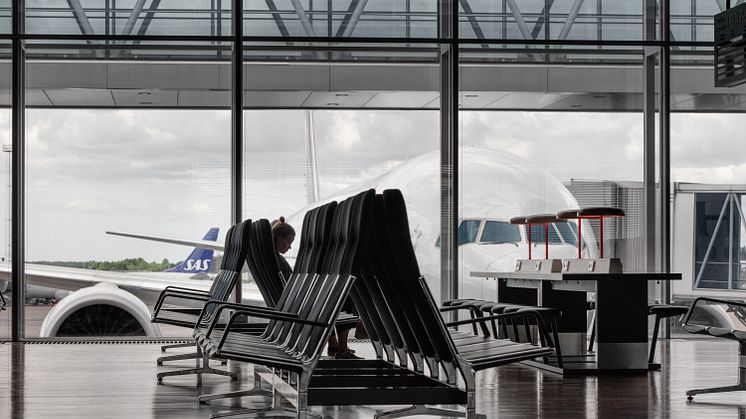
Press release -
Delegation from Singapore at Stockholm Arlanda to learn about bio aviation fuel
Swedavia is a world leader in developing climate-smart airports and has won international recognition for its investment in bio aviation fuel. Now a delegation with representatives from organisations such as Singapore Airlines, the Civil Aviation Authority of Singapore and Changi Airport have visited Swedavia to learn more about the airport’s work to reduce its climate impact, with bio aviation fuel being a key factor. The delegation also made a visit to Stockholm Arlanda Airport’s fuel depot to see how storage and refuelling with bio aviation fuel work in practice.
Over the past couple of decades, the air transport industry has made major progress in reducing fossil carbon dioxide emissions, and in 40 years air travel has become 70 per cent more fuel-efficient. Since 2016, Swedavia buys bio aviation fuel each year corresponding to the fuel consumed by its employees on some 10,000 annual flights for business purposes. Bio aviation fuel is indeed key to the long-term sustainability of air travel, and Swedavia’s vision is for Swedish domestic air travel to be fossil-free by as early as 2030.
Swedavia’s investment in bio aviation fuel has been recognised internationally. Representatives from Singapore Airlines, the Civil Aviation Authority of Singapore, the Singapore Economic Development Board and Changi Airport Group recently visited Stockholm Arlanda to learn more about Swedavia’s climate work. There was great interest in how Swedavia works to create greater demand for bio aviation fuel so that the supply will increase over time and reduce production costs. Other matters discussed were what the supply chain looks like and what society’s attitude is to bio aviation fuel. The delegation also made a study visit to Stockholm Arlanda’s fuel depot to see how storage and refuelling with bio aviation fuel work.
“It has been an interesting visit, with a great many experiences exchanged concerning how we as players can work to reduce the environmental impact of the air transport industry. It is primarily emissions that need to be reduced, not flying, with bio aviation fuel and technological advances being key factors in this development. We are naturally proud of the international attention we have attracted for our environmental work, with our climate target being zero carbon dioxide emissions by 2020,” says Lena Wennberg, Sustainability and Environmental Manager at Swedavia.
For further information, please contact Swedavia’s press office, telephone +46 (0)10-10 90 100 or press@swedavia.se
Topics
Categories
Swedavia is a State-owned group that owns, operates and develops ten airports across Sweden. Our role is to create the access Sweden needs to facilitate travel, business and meetings – in Sweden, in Europe and around the world. Safe, satisfied passengers are the foundation of our business. Swedavia is a world leader in developing airports with the least possible environmental impact. The Group has revenue of over 5.7 billion Swedish kronor and some 3,100 employees.






